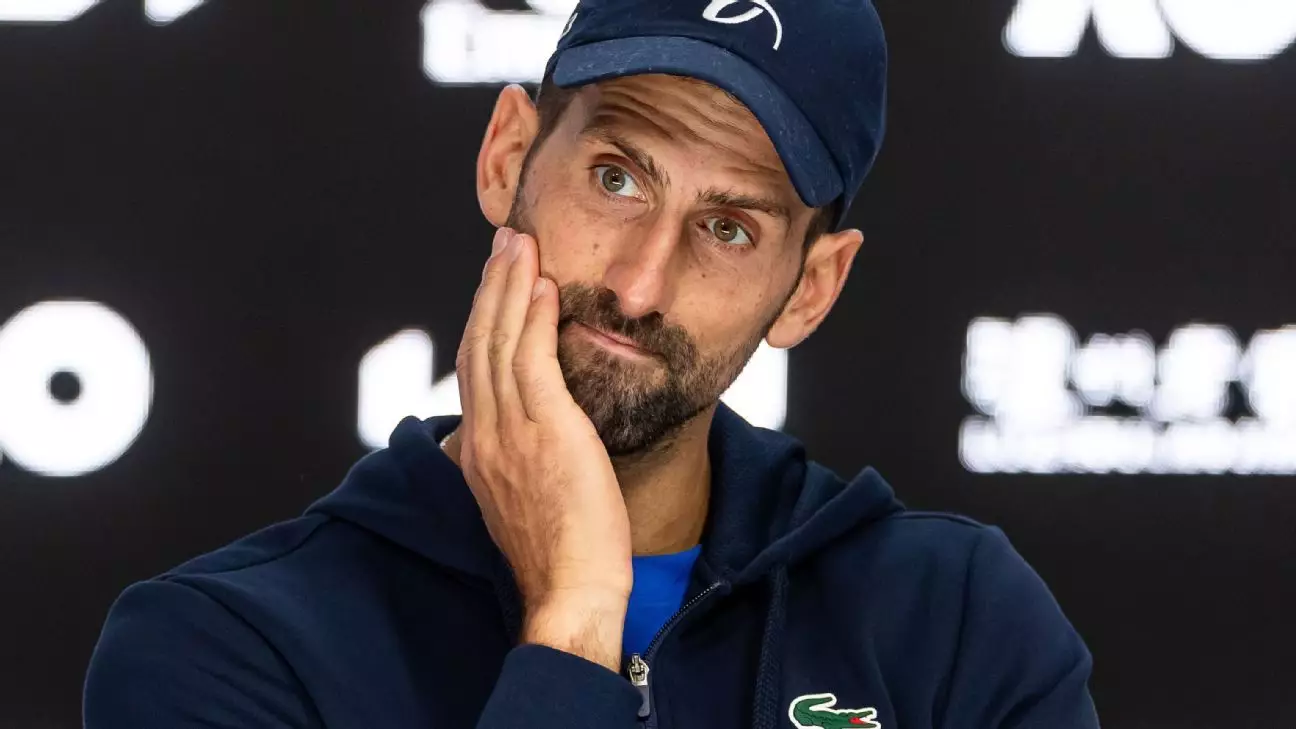In the world of professional tennis, tensions are brewing as players demand a more significant share of the revenue pie. Novak Djokovic, a titan of the sport and co-founder of the Professional Tennis Players’ Association (PTPA), has recently taken a stand on the current state of players’ rights. During a press conference at the Miami Open, he expressed his concerns over the existing power dynamics within the sport, which he describes as antiquated. While the foundation of the PTPA aims to uplift players and enhance their influence, Djokovic is cautious about the potential for division this lawsuit might create among the ranks.
The Players’ Call for Equity
The crux of the antitrust lawsuit filed by the PTPA is centered on the assertion that governing bodies like the ATP, WTA, and the International Tennis Federation (ITF) wield excessive control over the financial aspects of the sport—allegedly operating like a cartel. Djokovic’s desire for equitable revenue distribution is not just about prize money; it encompasses a broad spectrum of player rights, including representation and working conditions. His commitment to this cause goes beyond mere rhetoric. By not placing his name on the lawsuit, he encourages other players to step forward and take ownership of their destiny.
This strategic decision could be pivotal in inciting a collective movement among the players. With more than 250 athletes reportedly backing the lawsuit, it’s clear that there is a growing consensus across both men’s and women’s tennis that change is overdue. Djokovic’s comments reflect a critical understanding that while the sport has evolved in many ways, the economic structures still lag behind, leaving athletes in a precarious position.
Individual Voices and Collective Action
However, not all players are in agreement. Carlos Alcaraz, a young and promising talent, voiced his discontent regarding the lawsuit process, citing a lack of communication about his name being included. His sentiments highlight a crucial issue—the need for transparency and consensus among players before embarking on such significant legal endeavors. The dissenting voices indicate that a one-size-fits-all approach may not resonate with every player’s experience or perspective within the sport.
Djokovic recognizes these complexities, acknowledging both the merits and shortcomings of the lawsuit. His emphasis on the need for all governing bodies—particularly the PTPA—to engage in dialogue is an insightful remark, recognizing that unity among factions is essential for meaningful progress. The dichotomy between supporting players’ rights and the potential for fracture in the sport poses a challenging dilemma for all stakeholders involved.
The Path Forward: Bridging Divides
As tennis stands at this crossroads, the question arises: how can the sport foster a collaborative environment that champions player rights without undermining its foundational structures? While the antitrust lawsuit may serve as a catalyst for change, it is equally vital that players, organizations, and governing bodies come together to forge a more inclusive roadmap for the future.
The potential for a more equitable distribution of revenue and enhanced player representation is within reach. However, this ambition hinges on meaningful conversations and collective action—moving beyond legal battles to build a sport that truly reflects the interests of its players. Djokovic’s advocacy, along with the backing of the PTPA and its supporters, could indeed reshape the landscape of professional tennis into one where every player has a voice, and every voice carries weight.

